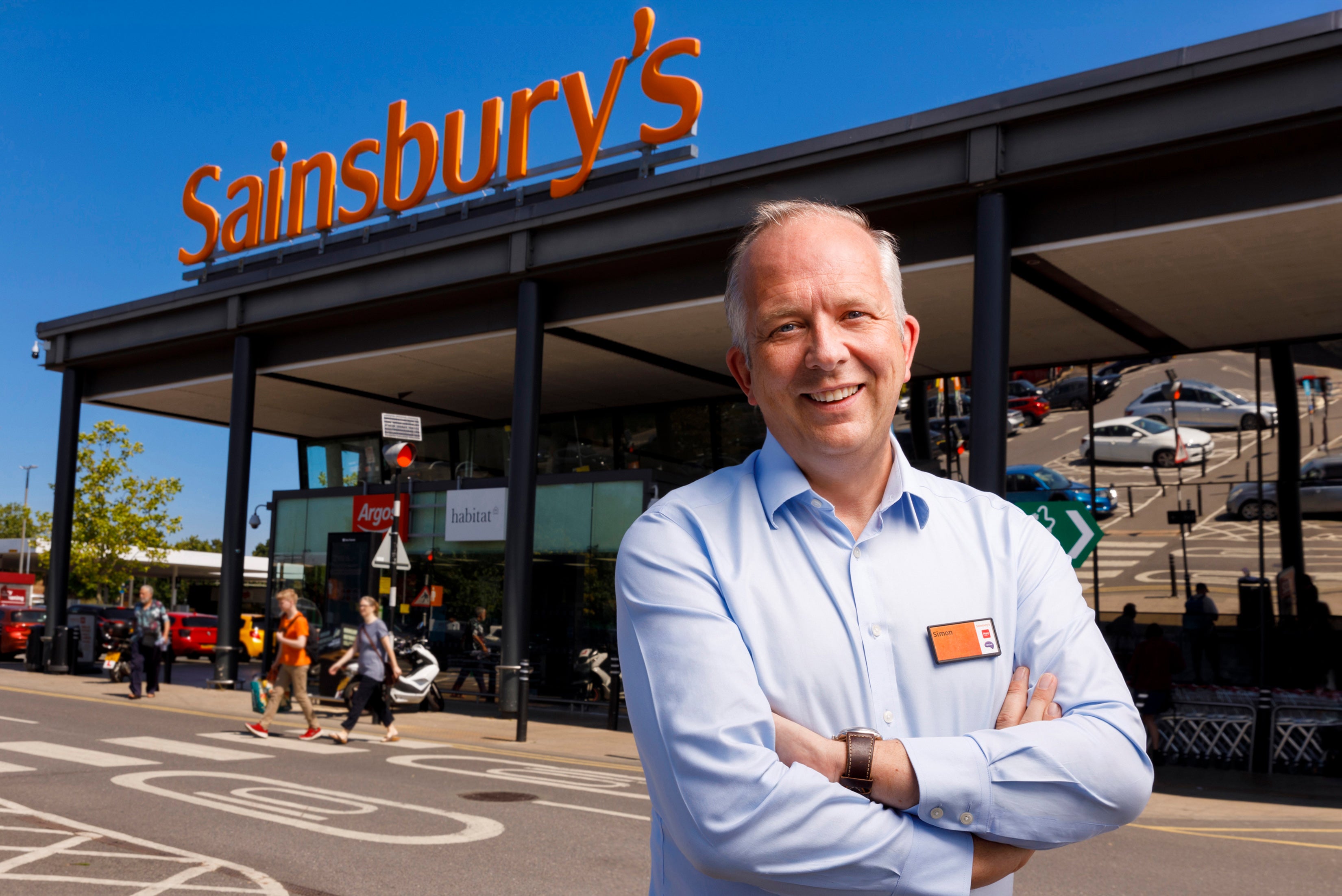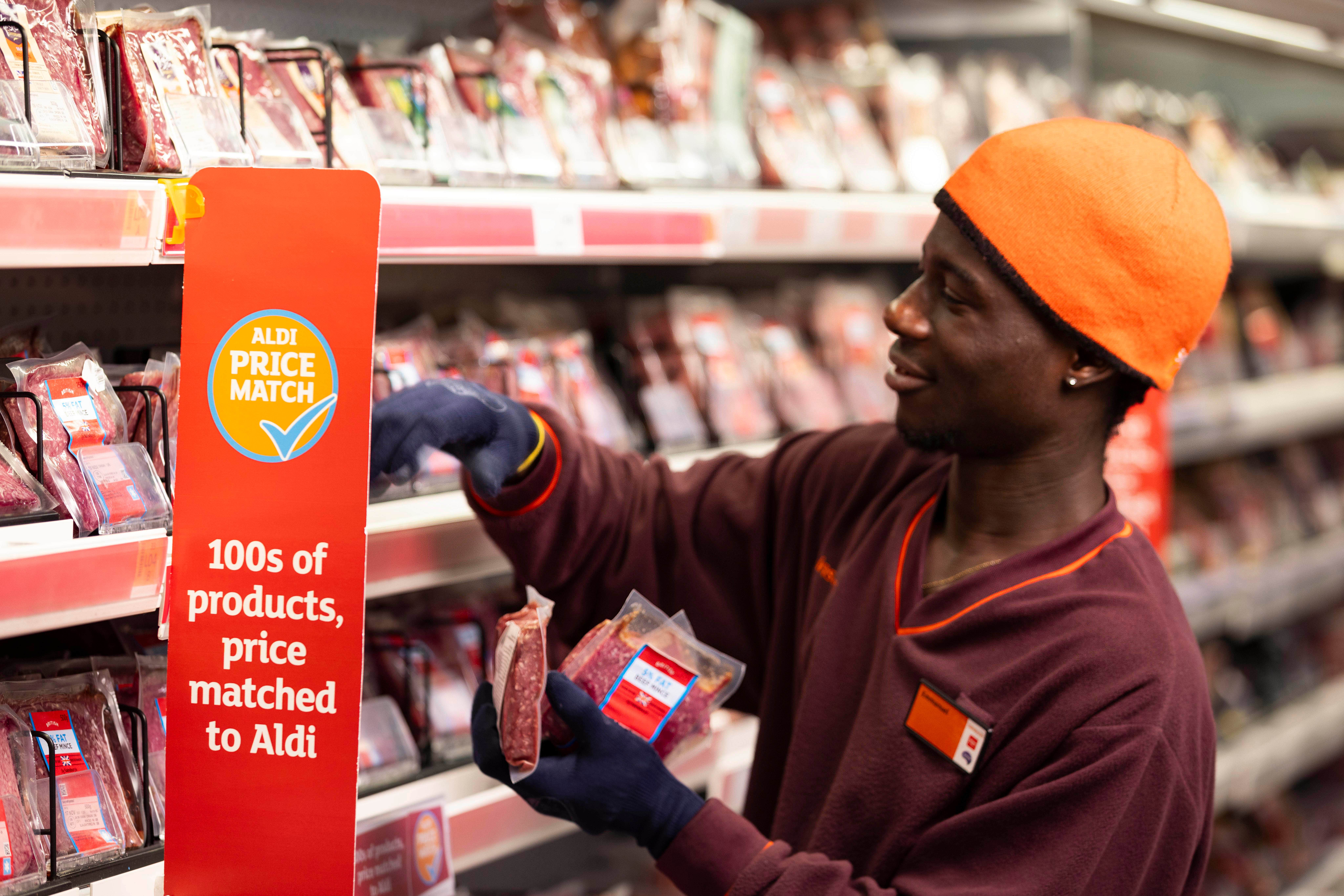Sainsbury’s boss: Budget-hit businesses will mean higher inflation for shoppers
Britain’s second-largest supermarket firm said changes to national insurance rules will add £140m to its costs

Your support helps us to tell the story
From reproductive rights to climate change to Big Tech, The Independent is on the ground when the story is developing. Whether it's investigating the financials of Elon Musk's pro-Trump PAC or producing our latest documentary, 'The A Word', which shines a light on the American women fighting for reproductive rights, we know how important it is to parse out the facts from the messaging.
At such a critical moment in US history, we need reporters on the ground. Your donation allows us to keep sending journalists to speak to both sides of the story.
The Independent is trusted by Americans across the entire political spectrum. And unlike many other quality news outlets, we choose not to lock Americans out of our reporting and analysis with paywalls. We believe quality journalism should be available to everyone, paid for by those who can afford it.
Your support makes all the difference.Sainsbury’s has said shoppers will face higher prices as a result of the surprise tax changes announced in last week’s Budget, which will hit the retailer with an extra £140m in costs.
The supermarket giant’s boss Simon Roberts said there is “already too much pressure in the pipe” for the retailer to swallow an unexpected cost rise without it affecting prices.
It has become the latest business to warn that increases to company national insurance contributions, coupled with a change in the threshold, are likely to result in pressure on consumers.
Mr Roberts said Sainsbury’s will see costs rise by £140m because of the changes, while costs will also be pushed higher by an increase in the national living wage.

He said the “unexpected barrage of costs” will “feed into a higher level of inflation” for consumers.
The chief executive of the UK’s second-largest supermarket firm said he had hoped cost increases would be offset by lower business rates, but these will also increase next year.
Mr Roberts said: “I urge the government to look at bringing forward changes to business rates sooner to help the industry.”
He also called for the government to “really listen” to the concerns of British farmers, who have fiercely criticised th chancellor Rachel Reeves’s decision to cut inheritance tax relief on agricultural assets.
It came as the retailer said it is expecting a “strong” trading performance over the festive period after revealing an acceleration in sales.
The supermarket firm said group revenues increased by 2.3 per cent to £17.2bn for the 28 weeks to 14 September, compared with the same period a year earlier.
This came as like-for-like retail sales, excluding fuel, grew by 3.4 per cent for the period, driven by a 4.2 per cent jump in the most recent quarter.
Sainsbury’s said the figures had been boosted by an improved performance in its Argos business.
Sales across Argos were 5 per cent lower for the half-year, after its decline slowed to 1.4 per cent in the second quarter from a 7.7 per cent slump in the first quarter.
Meanwhile, sales in the Sainsbury’s business grew by 4.6 per cent in the half-year, after growth improved to 5.1 per cent in the most recent quarter as it continued to increase its share of the UK grocery market.
The retailer said it had been helped by strong sales of its Taste the Difference premium range and its Nectar membership pricing.
Mr Roberts said: “Our food business is going from strength to strength, and we’re making the biggest market-share gains in the industry, with continued strong volume growth.
“More and more customers are coming to us for their big food shop, recognising our winning combination of value, quality and service.
“As we head into the festive season, there is real energy and excitement at Sainsbury’s and Argos and we’re expecting another strong performance.”
Meanwhile, pre-tax profits dropped by 51 per cent to £76m because of the impact of the restructuring of its financial services division through a number of major sales.
Its total underlying pre-tax profit was up 4.7 per cent to £356m.